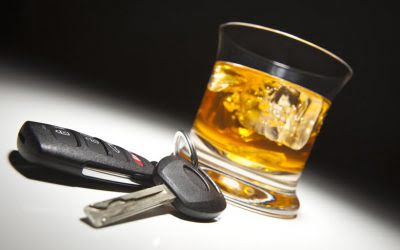Researchers like us don’t yet fully understand why some people may be more susceptible to this shift, but it likely has to do with genetic and biological factors, as well as the patterns and circumstances under which alcohol is consumed. These changes in the brain can appear even before there are noticeable changes in behavior. This could mean that the neurobiological underpinnings of addiction may take root well before an individual or their loved ones suspect a problem with alcohol. Multiple dosing strategies have been utilized in the management of AWS. When using any dosing technique, it is important to recognize the symptoms of benzodiazepine toxicity that can include respiratory depression, excessive sedation, ataxia, confusion, memory impairment, and delirium, which may be difficult to differentiate from DT .
Symptoms and Causes
Alcohol, a CNS depressant, stimulates the GABAergic system and, in acute intoxication, causes a range of clinical manifestations such as disinhibition, euphoria, and sedation. At the same time, endogenous GABA is downregulated.[3] Thus, when alcohol is withdrawn, a relative deficit of GABA may occur and simultaneous excess in glutamate, resulting in the excitatory symptoms seen in alcohol withdrawal syndrome. More severe withdrawal symptoms are common in the first few hours of withdrawal.
History and Physical
You might also take anti-seizure meds and antipsychotics, along with other drugs. The symptoms of alcohol withdrawal can range from mild to serious. What yours are depends on how much you drank and for how long. Individuals experiencing mild symptoms could receive home treatment with the help of close friends and family members.

Polysubstance Abuse Disorder and Dual Diagnosis
- There is also a dangerous phenomenon called “alcohol kindling effect“.
- “I feel like I am actually going into the honeymoon phase of my recovery. I feel great and am finally starting to be able to think clearly.”
- When you engage in chronic heavy drinking, your brain adapts to the presence of alcohol in your blood to maintain homeostasis (a balanced state).
- Barr explained that acupuncture releases trauma from the body, so there was a chance I was experiencing an ‘emotional hangover’.
- “Gradually, it’s getting better. The only symptoms I seem to have now are occasional goosebumps/skin crawling, lack of focus, and anxiety. Still experiencing strange dreams and nightmares, but I remind myself they’re not real and it helps.”
The first day is always the hardest, but it’s also an important milestone. After 24 hours without alcohol, your body will start to detoxify and you may experience withdrawal symptoms. A doctor may also prescribe a sedative drug, such as a benzodiazepine, to help reduce withdrawal symptoms such as restlessness or agitation. Benzodiazepines like Librium (chlordiazepoxide) https://thealabamadigest.com/top-5-advantages-of-staying-in-a-sober-living-house/ and Ativan (lorazepam) may also help to prevent minor withdrawal symptoms from becoming more severe. Other drugs a healthcare provider might prescribe include anxiolytics , vitamins, and suboxone. In addition to experiencing Stage 2 symptoms, those with severe alcohol withdrawal experience severe anxiety and moderate to severe tremors.
Mild Alcohol Withdrawal Symptoms
This is because alcohol can cause fatigue and decreased motivation, so when you stop drinking, you may find it easier to get things done. One of the surprising side effects of giving up alcohol is that your skin may start to look better. This is because Sober House alcohol can cause dehydration, which can lead to dry, dull skin. So, giving up alcohol can help your skin to look more hydrated and glowing. Along with anxiety and irritability, you may also experience mood swings when you give up alcohol.
- According to the National Institute on Alcohol Abuse and Alcoholism (NIAAA), alcohol is the most commonly used substance in the United States, with over 75% of individuals aged 12 and older reporting lifetime consumption.
- One of the best things about giving up alcohol is that you may find yourself feeling happier overall.
- These may still be mild, or the existing symptoms might increase in severity.
- The final reference list was generated on the basis of relevance to the topics covered in this review.
- So, giving up alcohol can help your skin to look more hydrated and glowing.
